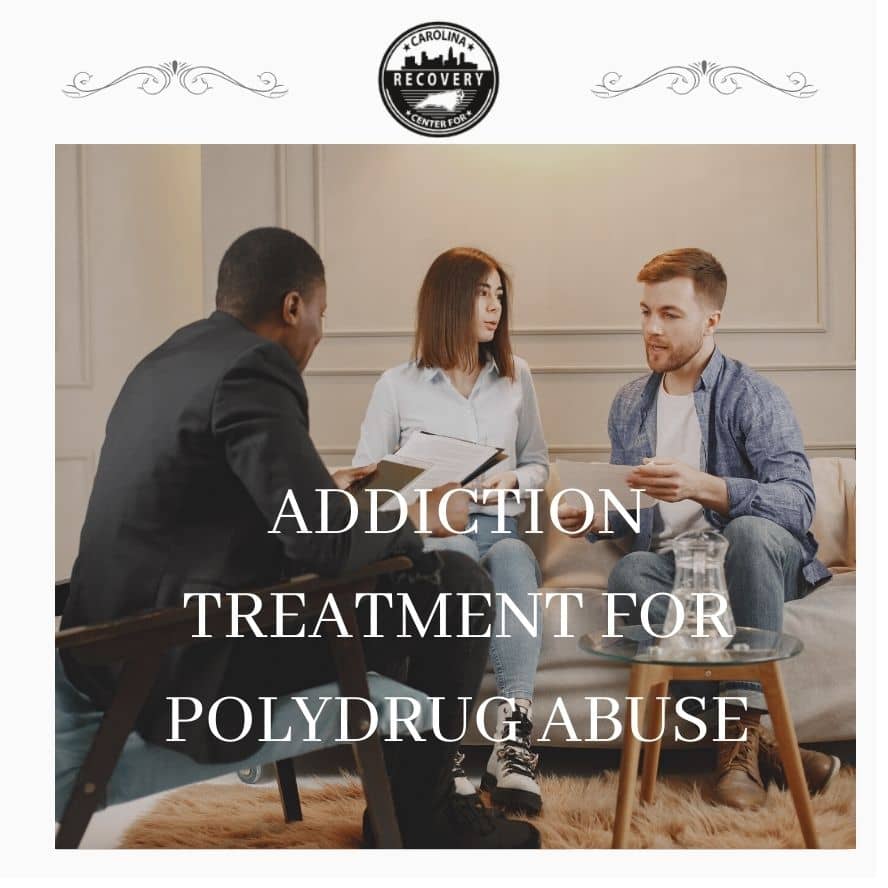Addiction Treatment for Polydrug Abuse

Medically Verified: 2/1/24
Medical Reviewer
Chief Editor

All of the information on this page has been reviewed and verified by a certified addiction professional.
A person’s addiction to drugs or alcohol can negatively impact every aspect of their life. Many people with addiction require treatment to avoid the condition’s devastating effects and to learn how to embrace a healthy, sober lifestyle.
But what about people with polysubstance abuse–those addicted to multiple drugs? Living with an addiction to more than one drug can cause severe harm and make it more difficult for people to get the effective treatment they need.
While treating multiple drug addictions may be more complicated, finding the proper treatment for people living with this condition is crucial. Learning more about polysubstance abuse and your treatment options may help you make informed decisions about your care.
For more information about addiction treatment for polydrug abuse, contact the Carolina Center for Recovery staff today.
What Happens When Someone Has Polysubstance Abuse?
A person can develop an addiction to more than one substance. Addiction to multiple drugs–polysubstance abuse– differs from accidentally mixing drugs. For example, someone who mixes alcohol and prescription medication without understanding the danger of combining them is not necessarily engaging in polysubstance abuse.
Polydrug abuse often involves abusing one substance and then taking other drugs to enhance its effects. When you use multiple drugs, the harmful side effects of both drugs are dialed up. People with an addiction to more than one substance often experience unwanted, sometimes dangerous side effects, including:
- Nausea
- Vomiting
- Muscle aches
- Dizziness
- Loss of coordination
- Changes in heart rate and blood pressure
- Labored or shallow breathing
While many of these side effects are only uncomfortable, some side effects of polysubstance abuse can cause short and long-term harm to your health.
Some commonly combined substances in polysubstance abuse are:
- Cocaine and alcohol: When people combine alcohol and cocaine, the concentration of cocaine in a person’s system may go up by as much as 30%. Cocaine can dull the alcohol’s effects, causing people to drink more than they intended to. Mixing cocaine and alcohol can also produce a toxic byproduct called cocaethylene that increases the risk of overdose.
- Cocaine and opioids: Cocaine users may take opioid drugs to reduce the drug’s effects and allow them to slow down or sleep. Since these drugs have opposing effects, users may take higher amounts of the drugs. Taking more of a drug than your body is used to can significantly increase your risk of overdose.
- Opioids and benzodiazepines: Benzos and opioids, such as , depress the central nervous system (CNS) and can cause slow, shallow breathing. Users who combine these types of drugs are at risk of dangerously low oxygen levels and brain damage.
- Prescription and illicit drugs: Mixing prescription medications and illegal substances can have devastating consequences on your health. Many prescription medications affect your body similarly to illicit drugs. Combining them can be dangerous and sometimes life-threatening.
Combining over-the-counter medications and prescription or illegal drugs can have dangerous effects. You must talk to your healthcare provider about all medicines or drugs you take.
The Dangers of Polysubstance Abuse
Polysubstance abuse can change how your body metabolizes drugs and alcohol. This can increase the concentration of drugs in your bloodstream. In some cases, a higher substance concentration can lead to an overdose. An overdose is often immediately life-threatening.
Some of the long-term effects of polysubstance abuse are:
- Hepatitis C: This severe medical condition causes life-threatening harm to your liver and is more common among people who use both alcohol and injectable drugs.
- Myocardial infarction: Heart attacks are more common in people who smoke cigarettes and abuse cocaine.
- Mental illness: Polysubstance abuse can intensify the symptoms of a mental illness, and mental illness can increase a person’s substance abuse.
If you or someone you know lives with polydrug abuse, you must seek immediate treatment to avoid this condition’s short- and long-term risks.
Polysubstance Abuse and Overdose
Many substances have effects that cover up other drugs’ effects. Taking more than one substance means a person may not notice the effects of the drugs as clearly and may take more to get the desired results. Taking more of a drug than your body is accustomed to can lead to an overdose. An accidental overdose is a medical emergency. You must seek immediate medical help if you or someone with you is having an overdose. You can use naloxone to reverse the effects of an opioid overdose, but it cannot treat an overdose of any other substance.
Addiction Treatment for Polydrug Abuse
Addiction is a complex condition that requires compassionate, holistic treatment. People living with polysubstance abuse must seek treatment to overcome this complex condition.
Addiction treatment for polydrug abuse often begins with a medically-supported detox program. If you have been using multiple substances, you will detox from all of them at the same time. Your withdrawal symptoms may last longer or be more severe than people who withdraw from just one substance. The amount of time it takes your body to detoxify depends on the severity of your addiction, the substances you used, your general health, and other factors.
Medical and support staff will treat your withdrawal symptoms during detox with medications, emotional support, and holistic therapies. After completing detox, you must start a treatment program that includes evidence-based and holistic treatments that address addiction’s emotional, physical, and behavioral aspects.
Get Help Now
Contact the Carolina Center for Recovery specialists today to learn more about addiction treatment for polydrug abuse.

